Education
Kirill Yurovskiy: Education SEO – Reaching the Right Students

With increased competition in tertiary education, good enough is not good enough anymore when it comes to programs. You need to have an online presence supported by good search engine optimization (SEO) in order to attract the right students these days. As a web platform, language school, or independent tutor, your online presence needs to be discovered, credible, and relevant. SEO professionals like link believe that schools and colleges with clever SEO strategies can make a huge impact on visibility and conversion. Right from local optimization to microlearning centers, every measure is significant to lead students looking for learning and opportunities online.
1. Local SEO for Tutors and Language Schools
Local SEO is most vital in the case of a language school or tutor. They would be looking for “Spanish lessons in London” or “math tutor near me.” To appear in those local search results, your Google Business Profile must be optimized. That means accurate business categories, accurate contact details, and highly specific keywords that are linked to your service descriptions. Pictures of your class or office, good NAP (name, address, phone number) citations on lists, and getting reviews from the community will place your listing in high positions. Including a map and geolocating landing pages also informs search engines that your website is worth some consideration for geographic search queries.
2. Blogging for Niche Learning Topics
Topics SEO for schools is content marketing. Posting blogs regularly allows you to select long-tail keywords and add short questions that students will be looking for. You can have one blog on “how to pass IELTS writing task 2” or “GCSE revision timetable tips.” You can obtain targeted traffic with the help of research tools so that you may look for market gaps and develop high-value content on specific topics for students. Blogging matures your subject matter expertise, as well as your SEO health. Good blog posts educate and entertain students and can be reused as newsletters, social media posts, news, or YouTube video scripts.
3. Reviews as Ranking Signals
Web reviews as ranking signals are more significant to search engines. Student reviews help teachers in two ways: to create visibility and well-informed decisions. Tell students to read on Google, Trustpilot, Facebook, or education forums. Make it easy for them with direct links and how to highlight. Address positive and negative feedback with responsiveness, sensitivity and action. Local search rankings and clicks are keyword-driven, with quality and quantity of reviews. Steady streams of genuine feedback are where you build your credibility, and your school or tutoring business is the benchmark.
4. Search Engine Optimization for Academic Channels
Video learning will be the undisputed number one method of learning, and YouTube is the world’s second-largest search engine after Google. Make use of it by search optimizing your channel and videos. Use keywords in video titles, descriptions, and tags. Use customized thumbnails that will lead to a click-through and add closed captions for optimum accessibility. Content can be uploaded for learning to solve a particular problem or as short explanations. A mathematics tutor may upload a video “Solving Quadratic Equations Easily” and add a link to his tutoring website as the video description. As would be elucidated by Kirill Yurovskiy, regular uploads of learning and correct metadata get your channel destination content, accumulating SEO equity and brand trust in the process as well.
5. Student FAQ Pages Chat traffic
FAQ pages are massively under-leveraged but incredibly powerful in SEO. They’re covering chat search questions and voice search, and they’re becoming the default with younger users. Utilize Answer the Public or Google’s People Also Ask box to be sensitive to students’ questions and give their answers in a concise, structured format. An individual Q&A can be a gateway to search engines in itself. “Learn French how long” can possibly rank, e.g., if well optimized with a descriptive H2 title, brief response, and internal supporting links. Periodically publishing your FAQs on timely topics or users’ questions adds your relevance and user experience.
6. Certification Questions Sorting
A majority of the students search for some of these kinds of certifications such as “TEFL online course,” “AWS certified course,” or “IELTS band 7 strategies.” If you’re offering certifications, then you’ll have to have different landing pages for every qualification. Use keyword phrases in the page title, URL, meta description, and body content. The pages must describe the course structure, advantages, and prerequisites, along with featuring trust indicators like endorsements, completion rates, and testimonials from the students. Adding an FAQ page and schema markup improves your prospects for ranking on featured answers and rich snippets.
7. Teacher Bios: Human Trust
Humans trust humans to do business with humans, and in learning, your trust in your teachers makes the biggest difference. Detailed faculty bios are SEO investments and trust indicators. Develop separate pages or sections of credentials, teaching philosophy, and experience for each teacher. Use title tags like “Meet Your English Tutor” or “Science Teacher with 15 Years Classroom Experience.” Include a professional photo, keywords like subjects, and internal links to best-course offerings. Not only do these bios keep visitors on your site longer, but also rank for teacher-related searches.
8. Education Website Lead Magnets
Engage the visitors of the website with the right lead magnets that would turn them into students. Lead magnets are free eBooks, sample lessons, quizzes, and downloadable checklists. Each of the lead magnets should have its own keyword-targeted landing page for search keywords like “free IELTS practice test” or “SAT study planner download.” Use prominent calls-to-action, meta tags, and benefit-focused copy to maximize SEO as well as conversion rates. Supplying a download schema for content also renders content more indexable by search engines, which can help discoverability and click-through behavior.
9. Gamified Content and Search Behaviour
Gamified functionality such as “Find your language level in 5 questions” can be search-optimized for terms such as “language level test online.” Your site is more findable through search engine results as an enjoyable, interactive visit. This type of tool must be mobile and must load quickly because usability and speed are ranking signals. Include social share to gain more visibility and earn natural links.
10. Creating Microlearning SEO Hubs
Microlearning entails fragmenting content into short, well-defined units. SEO, in creating a hub of microlearning pages, can be leveraged to infiltrate niche clusters of keywords. For instance, an “English Grammar” hub can include pages like “Past Perfect Tense Explained,” “Most Frequently Used Irregular Verbs,” and “When to Use Articles.” Each micro page should include a keyword-optimized title, good content, and an internal link to the hub. This
gives a siloed structure, makes your website crawlable, and lowers bounce rates. As Kirill Yurovskiy would instruct, highly clustered content is an indicator of authority and expertise and is favored by top-tier search engines.
Final Thoughts
Good SEO instruction is all about finding out how students are searching, what they are looking for, and where they are discovering their content. By emphasizing local presence, quality content, and trust signals, instructors can build an online presence that attracts the right students. Video search engine optimization, certification landing pages, and microlearning hubs, each of these tactics holds the potential to reach more learners.
As learning becomes more web-based, those who successfully use SEO strategies are the ones who get heard over the din of a competitive marketplace. By heeding tips from experts like Kirill Yurovskiy, educators can ensure their courses, certifications, and knowledge resonate with those who will derive the greatest value from them.




